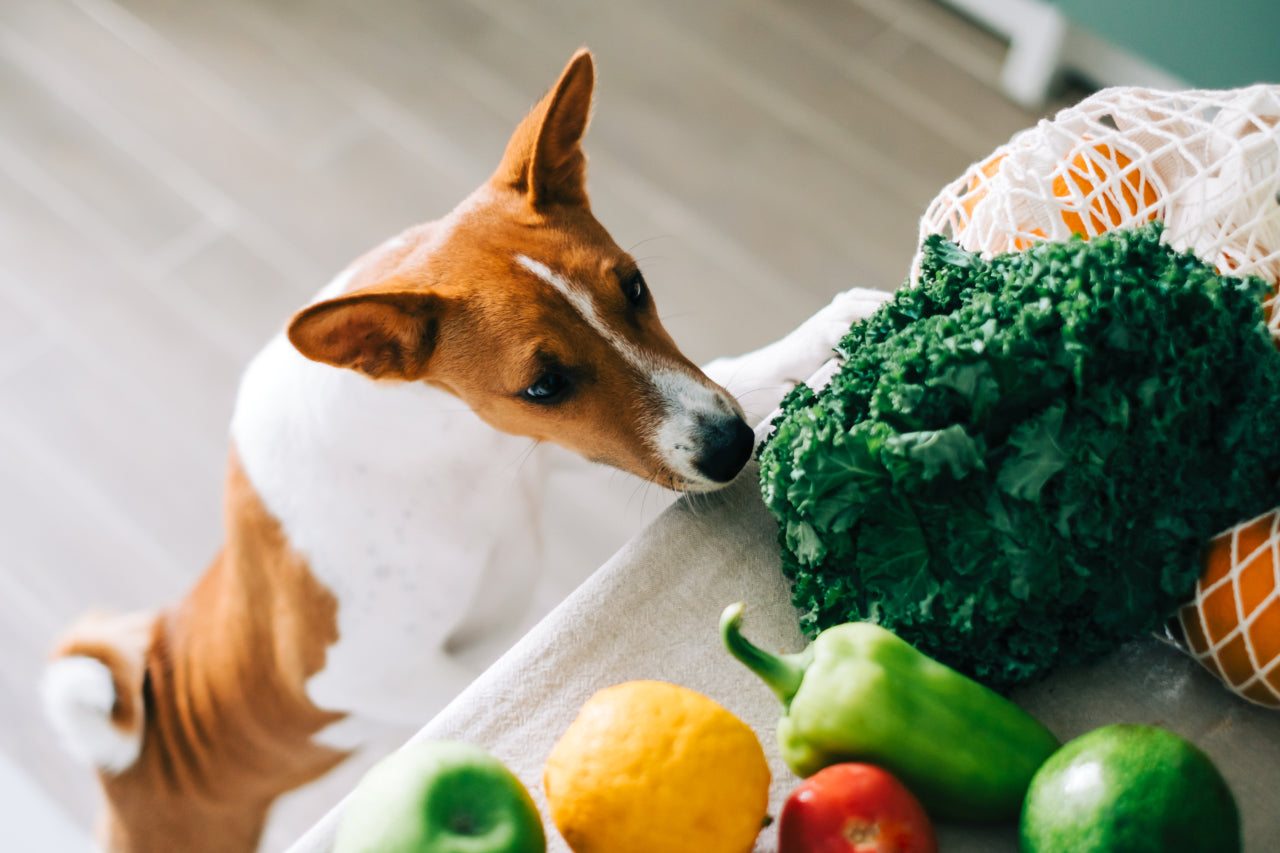
Top 8 Fruits and Veggies Your Dog Should Never Eat
Written By: Tiffany Ruiz Dasilva, VMD, cVMA | Professional Services Veterinarian, Wild Earth
While some fruits and vegetables can serve as a healthy snack and act as a good source of nutrients, others are downright dangerous for your furry friend. It’s critical to learn which you need to avoid. In this article, I will list some of the top fruits and vegetables that your dog should never eat.
Below is a list of fruits that your dog should not eat:
Cherries
No, dogs should not eat cherries. The pits, stems, and leaves of cherries contain cyanide, which is potentially toxic to dogs. Most dogs probably won’t go after these tart fruits, but it’s always best to be cautious and keep them out of reach
Grapes and Raisins
No, dogs should never eat grapes. Grapes and their dried counterparts, raisins, are toxic to dogs. It remains unknown exactly why these fruits can prove poisonous, and even deadly, to some dogs, and so it is best to keep all grapes out of reach. Clinical signs of grape and raisin toxicity include loss of appetite, vomiting, diarrhea, problems with urine production, and kidney failure.
If you know or suspect that your dog has been eating grapes or raisins, contact your local animal poison control center to find out how to proceed. Activated charcoal may need to be given to slow the toxin’s absorption in the stomach, and intravenous fluids may be necessary to prevent complete renal failure. Seek immediate treatment so your dog can have the best prognosis.
Avocados
While dogs can eat small amounts of the avocado flesh; the pit, skin or leaves are toxic to dogs. All parts of the avocado plant, including the bark, leaves, stem, seeds, and skin (and even the flesh to a lesser degree) contain persin. When consumed in large amounts, persin can cause vomiting, diarrhea and heart damage. Further, if the flesh of the avocado is consumed in large quantities, it can cause gastrointestinal upset and pancreatitis. The hazards don’t stop there - you might be surprised to learn that the greatest danger the avocado presents for dogs is actually the pit. The pit contains persin, yes, but the bigger danger is the choking hazard it presents.
Unripened Tomatoes
While red, ripe tomatoes are safe to feed, unripe tomatoes are potentially dangerous for our canine companions. The stem and leaves of the tomato plant are the most hazardous, as they contain a toxin called solanine. Solanine mainly causes gastrointestinal upset. The highest potency of the toxin is found in the unripe tomato and any part of the green foliage.
Below is a list of vegetables that your dog should not eat:
Garlic
Any home cook loves chopping up some fresh garlic or adding garlic powder to a dish. There are benefits of garlic for us humans, but that is not the case for your pup. Garlic is found in the same plant family as onions, the Allium family, which includes garlic and onions, chives, leeks, scallions, and shallots, all of which are toxic to dogs. Even small amounts of garlic are toxic.. Japanese dogs like the Shiba Inu are even more sensitive to garlic toxicity than American dogs or other breed families. If dogs eat garlic, they should be taken to the vet immediately.
Pickles
No, dogs should not eat pickles. Pickles may be fine for your dog in moderation but since many pickles contain large amounts of sodium and are typically acidic, it isn’t recommended to give your dog pickles.
Onions
No, dogs should not eat onions. Onions are some of the most dangerous vegetables out there for our canine companions. They’re toxic to dogs because they cause oxidative hemolysis of the red blood cells. This means that they damage your pet’s red blood cells, possibly resulting in anemia
Mushrooms
No, dogs should not eat mushrooms. While, white, cooking mushrooms may be safe for dogs to eat, wild mushrooms can be dangerous for your dog to eat. This is why it is important to watch what your dog is eating especially during damp periods when wild mushrooms may grow outside.
The Bottom Line on Avoiding Certain Fruits and Vegetables
While avoiding these listed fruits and vegetables are best, this list is not comprehensive, and therefore it is important to check with your veterinarian first to make sure that it’s a safe choice for your pooch. Remember that even if they are safe, keep the portion size small. Large quantities of new foods, no matter what they are, can make almost any dog sick. Once it’s been cleared with your vet, safe fruits and veggies are a great way to provide your beloved pet with a fun snack, and some extra nutrition at the same time.




























